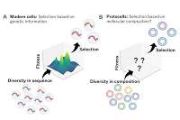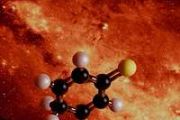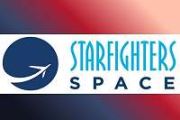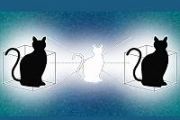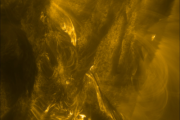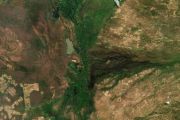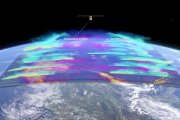
Copernical Team
New moon of Uranus
 Image:
New moon of Uranus
Image:
New moon of Uranus Healthy mouse offspring born from space preserved stem cells
 A Kyoto University team has demonstrated that cryopreserved mouse spermatogonial stem cells stored aboard the International Space Station (ISS) for six months can still produce healthy offspring after transplantation. The results provide important insight into reproductive health and germline preservation during long-duration space missions.
Researchers cryopreserved the mouse stem cells b
A Kyoto University team has demonstrated that cryopreserved mouse spermatogonial stem cells stored aboard the International Space Station (ISS) for six months can still produce healthy offspring after transplantation. The results provide important insight into reproductive health and germline preservation during long-duration space missions.
Researchers cryopreserved the mouse stem cells b Juice team resolves anomaly on approach to Venus

The European Space Agency’s Jupiter Icy Moons Explorer (Juice) is on track for its gravity-assist flyby at Venus on 31 August, following the successful resolution of a spacecraft communication anomaly that temporarily severed contact with Earth.
The issue, which emerged during a routine ground station pass on 16 July, temporarily disrupted Juice’s ability to transmit information about its health and status (telemetry).
Thanks to swift and coordinated action by the teams at ESA’s European Space Operations Centre (ESOC) in Darmstadt, Germany, and Juice’s manufacturer, Airbus, communication was restored in time to prepare for the upcoming planetary encounter.
SpaceX delays Starship megarocket launch in latest setback
This request seems a bit unusual, so we need to confirm that you're human. Please press and hold the button until it turns completely green. Thank you for your cooperation!
Press and hold the button
If you believe this is an error, please contact our support team.
185.132.36.159 : 94cf4857-f257-4a0b-b5c5-ecda2125
SpaceX delays tenth Starship launch attempt following ground systems issue
 SpaceX has postponed the planned tenth test flight of its Starship megarocket, citing a problem with ground systems that forced a halt to Sunday's countdown at Starbase in southern Texas.
"Standing down from today's tenth flight of Starship to allow time to troubleshoot an issue with ground systems," the company posted on X. The giant rocket had been scheduled to lift off at 6:30 pm local
SpaceX has postponed the planned tenth test flight of its Starship megarocket, citing a problem with ground systems that forced a halt to Sunday's countdown at Starbase in southern Texas.
"Standing down from today's tenth flight of Starship to allow time to troubleshoot an issue with ground systems," the company posted on X. The giant rocket had been scheduled to lift off at 6:30 pm local Ozone recovery will accelerate global warming say scientists
 The world is set to heat up more than expected because of future changes in ozone, which shields Earth from ultraviolet radiation but also acts as a greenhouse gas.
Although international bans on ozone-depleting chemicals such as CFCs have aided the layer's recovery, combined effects with air pollution mean ozone could add 40% more warming than earlier predictions suggested.
A Univer
The world is set to heat up more than expected because of future changes in ozone, which shields Earth from ultraviolet radiation but also acts as a greenhouse gas.
Although international bans on ozone-depleting chemicals such as CFCs have aided the layer's recovery, combined effects with air pollution mean ozone could add 40% more warming than earlier predictions suggested.
A Univer SpaceX launches secretive US military spacecraft
 A SpaceX Falcon 9 rocket blasted into space on Thursday night carrying the US military's secretive X-37B drone.
The rocket successfully launched at 11:50 pm (0350 GMT on Friday), according to SpaceX's livestream of the event.
The Falcon 9 lit up the night sky over NASA's Kennedy Space Center, where it was launched from.
The US Space Force has said the drone's mission will include
A SpaceX Falcon 9 rocket blasted into space on Thursday night carrying the US military's secretive X-37B drone.
The rocket successfully launched at 11:50 pm (0350 GMT on Friday), according to SpaceX's livestream of the event.
The Falcon 9 lit up the night sky over NASA's Kennedy Space Center, where it was launched from.
The US Space Force has said the drone's mission will include Space solar power study outlines potential role in Europes clean energy future
 Space-based solar power could significantly reshape Europe's energy system by 2050, according to new research in the journal Joule. The study estimates the technology could reduce Europe's reliance on Earth-based wind and solar generation by up to 80% while lowering overall grid costs by 7% to 15%.
Researchers modeled the European energy system in 2050 using two NASA-developed designs for
Space-based solar power could significantly reshape Europe's energy system by 2050, according to new research in the journal Joule. The study estimates the technology could reduce Europe's reliance on Earth-based wind and solar generation by up to 80% while lowering overall grid costs by 7% to 15%.
Researchers modeled the European energy system in 2050 using two NASA-developed designs for Dark energy black holes align with DESI data to yield realistic neutrino masses
 Dark energy, once thought constant across time, may instead evolve through the universe, according to new results from the Dark Energy Spectroscopic Instrument (DESI). Researchers show that interpreting black holes as dark energy bubbles not only supports this view but also offers consistent neutrino mass estimates.
The DESI collaboration, working from Kitt Peak National Observatory in Ari
Dark energy, once thought constant across time, may instead evolve through the universe, according to new results from the Dark Energy Spectroscopic Instrument (DESI). Researchers show that interpreting black holes as dark energy bubbles not only supports this view but also offers consistent neutrino mass estimates.
The DESI collaboration, working from Kitt Peak National Observatory in Ari Using exoplanets to study dark matter
 More than 5,000 planets have been discovered beyond our solar system, allowing scientists to explore planetary evolution and consider the possibility of extraterrestrial life. Now, a UC Riverside study published in Physical Review D suggests that these "exoplanets" could also serve as tools to investigate dark matter.
The researchers examined how dark matter, which makes up 85% of the un
More than 5,000 planets have been discovered beyond our solar system, allowing scientists to explore planetary evolution and consider the possibility of extraterrestrial life. Now, a UC Riverside study published in Physical Review D suggests that these "exoplanets" could also serve as tools to investigate dark matter.
The researchers examined how dark matter, which makes up 85% of the un


